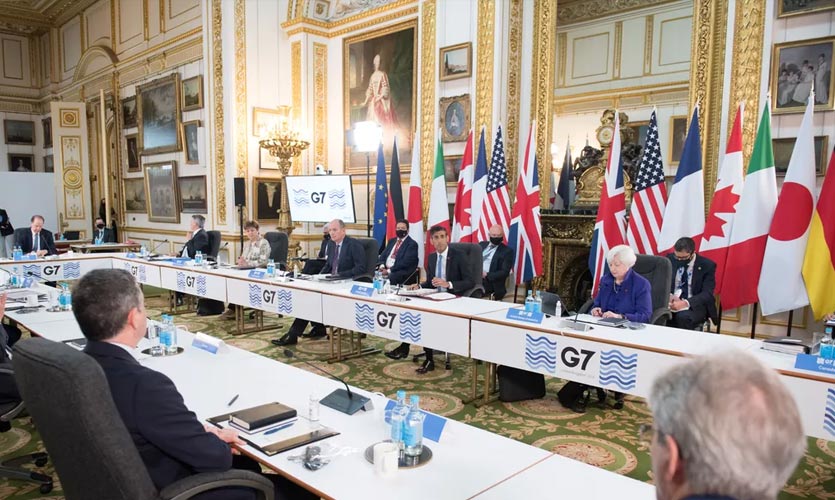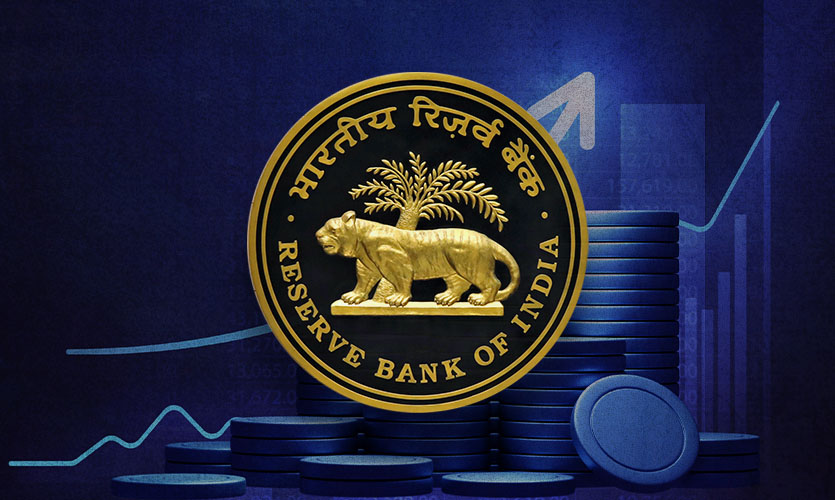A landmark agreement between G7 countries and multinational corporations has been reached in London. Finance ministers agreed to counter tax avoidance through measures that require companies to comply with local tax laws. The Indian Express reported that to prevent countries from undercutting each other to attract investment, they agreed in principle to ratify a global corporate minimum tax. As announced on Saturday, a deal involving the US, UK, Germany, France, Canada, Italy, and Japan will likely be discussed at the G20 meeting in July.
What exactly is the G7 ‘global minimum corporate tax rate’ deal?
In essence, Janet Yellen, US Treasury, proposed a global minimum corporate tax rate – which is a minimum rate that businesses regardless of their location must pay regardless of the jurisdiction in which they are incorporated. It is a form of corporate tax. The company must pay the difference between the minimum tax rate and the amount it paid on its overseas earnings if it moves some of its operations to a low-tax jurisdiction. The program is part of a worldwide campaign to stop Base Erosion and Profit Shifting (BEPS), in which large corporations registered in low-tax jurisdictions reduce their tax burden in their home countries. In conjunction with a global minimum rate, companies would be faced with paying wherever they are registered, and revenues would be distributed based on how much activity they carry out in each country.
What are the key takeaways?
- Multinationals will be required to pay taxes where they operate according to the first decision that has been ratified.
- Second, states agree to a 15 per cent global minimum corporate tax rate to avoid countries undercutting each other.
In April, US Treasury Secretary Janet Yellen urged the world’s 20 advanced nations to adopt a minimum global corporate income tax, which led to the ratification of the 15 per cent floor rate. During a virtual speech to the Chicago Council on Global Affairs, she stated that the move to implement a minimum rate would help reverse a “30-year race to the bottom” where countries have cut corporate tax rates to attract foreign firms.
The Indian Express reports that one of the reasons the US pushed for this was “purely domestic”. With this bill, the Biden administration intends to partially offset any disadvantages associated with its proposed increase in US corporate tax rates. Tax legislation enacted by the previous Trump administration in 2017 lowered the company tax rate from 35 per cent to 21 per cent. If this increase were to occur the corporate tax rate would return to its former level of 28 per cent. The US proposal includes a minimum tax increase from 10.5 per cent to 21 per cent, similar to that proposed by Yellen for other G20 countries. With this change, the US proposal is more significant than the Republican plan.
Read more; India’s GDP Shrinks By 7.3%
As explained by Yellen, the US government is in favour of a global pact on this issue at this time. It is the same for most of the countries in western Europe, even if some jurisdictions in low-taxed Europe rely mostly on tax rate arbitrage to attract multinational corporations, such as the Netherlands, Ireland, and Luxembourg.
The proposed minimum corporate tax does not only consider low tax jurisdictions, but also takes into consideration the low effective rates paid out by some of the world’s biggest corporations, including Apple, Alphabet, and Facebook as well as major corporations like Nike and Starbucks. Complex webs of subsidiaries are often used by these companies to transfer profits out of major markets into low-tax nations, such as Ireland, Caribbean nations like the British Virgin Islands, and Central American nations like Panama. A Tax Justice Network report estimates that the US Treasury loses nearly $50 billion annually from tax cheating, with German and French taxpayers suffering as well. According to the report, India loses over $10 billion in tax revenue every year due to corporate tax abuse.
What lies ahead for India
India or companies operating in India will not be impacted by the minimum tax of 15 per cent since the tax rate is aimed at businesses operating in low and no-tax countries. Deccan Herald reports that while Finance Minister Nirmala Sitharaman cut taxes from 22 per cent to 15 per cent for domestic companies in September 2019, the rate is still higher than the global minimum tax. With the reduction of taxes, India’s corporate tax is now on par with the average in Asia. Since these foreign companies already pay taxes according to G-7 expectations, their profitability in India will not have any great effect on them.
The proposal is beneficial to the country because it generates additional revenue. It is estimated that India loses over $10 billion in tax revenue as a result of offshore structures. Mauritius, Singapore, and the Netherlands offer almost no taxation, making them popular locations for investors. If passed, the Indian government would be able to tax Indian subsidiaries operating offshore. It may be possible to reach such a level of taxation that a Global Minimum Tax can be effective for all companies.
“While taxation is ultimately a sovereign function, and depends upon the needs and circumstances of the nation, the government is open to participate and engage in the emerging discussions globally around the corporate tax structure. The economic division will look into the pros and cons of the new proposal as and when it comes and the government will take a view thereafter,” a senior government official told The Indian Express. For existing companies claiming a variety of advantages in India, the average tax rate is around 29 per cent.
In response to “the challenges posed by digital enterprises that conduct business through the internet and carry out operations remotely”, the government has enacted the Equalisation Levy, which was introduced in 2016 based on a recommendation from a panel that deliberated on taxation of the digital economy. A provision has also been inserted into the IT Act to enable non-residents to establish a “business connection” through “Significant Economic Presence.”
Although the Indian government has a favourable stance towards the new deal, it is still criticised on the grounds that it will hurt Indian businesses. As a consequence of the Global Minimum Corporation Tax, countries would be encouraged to compete on other factors, including better regulatory regimes, ease of doing business, and access to global talent.
It should, however, be noted that the US will be able to apply its domestic law version of Pillar Two at a rate of 21 per cent if consensus is not built on a 15 per cent tariff rate. Even so, the post-pandemic era should focus on stimulating trade and economic activity, rather than on tax disputes.










